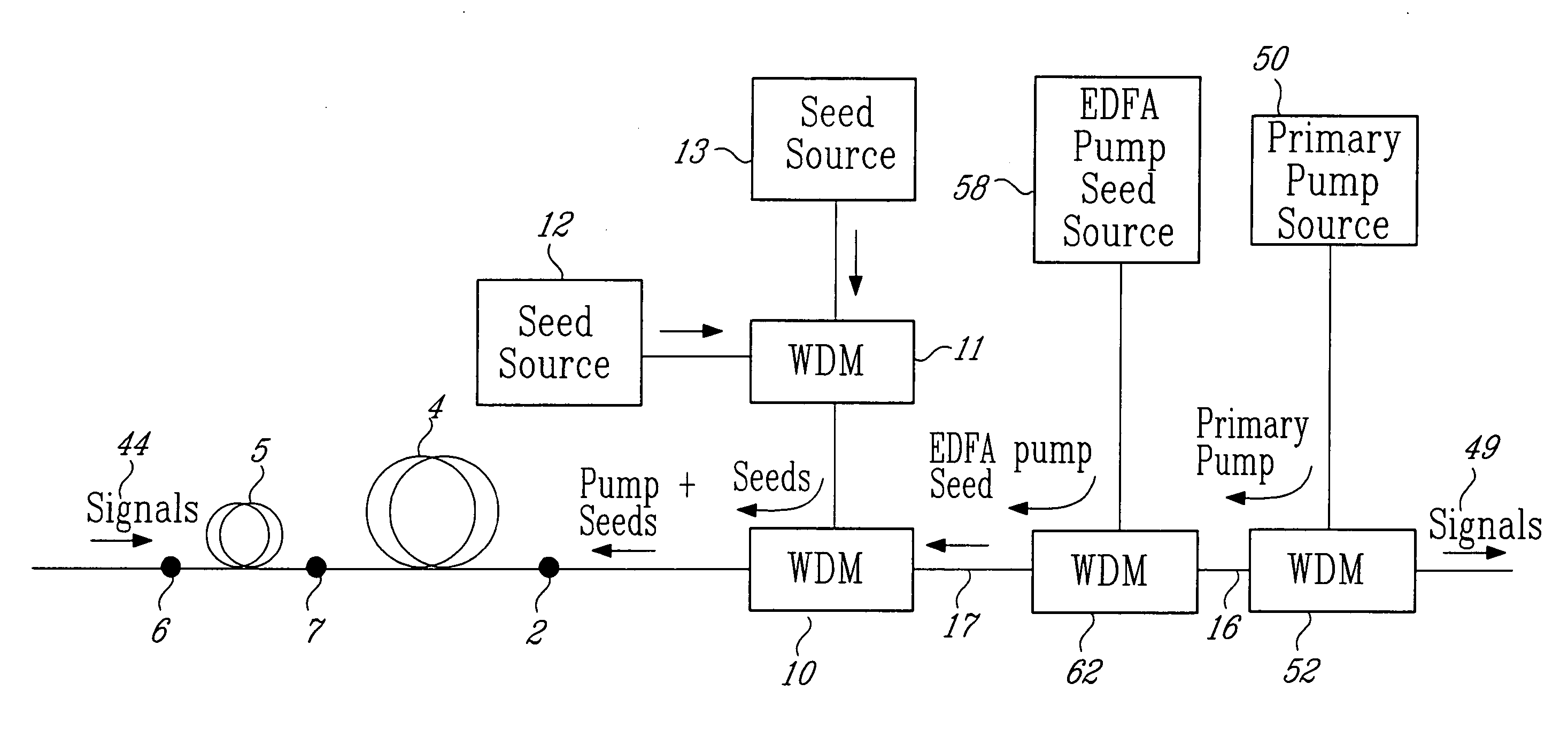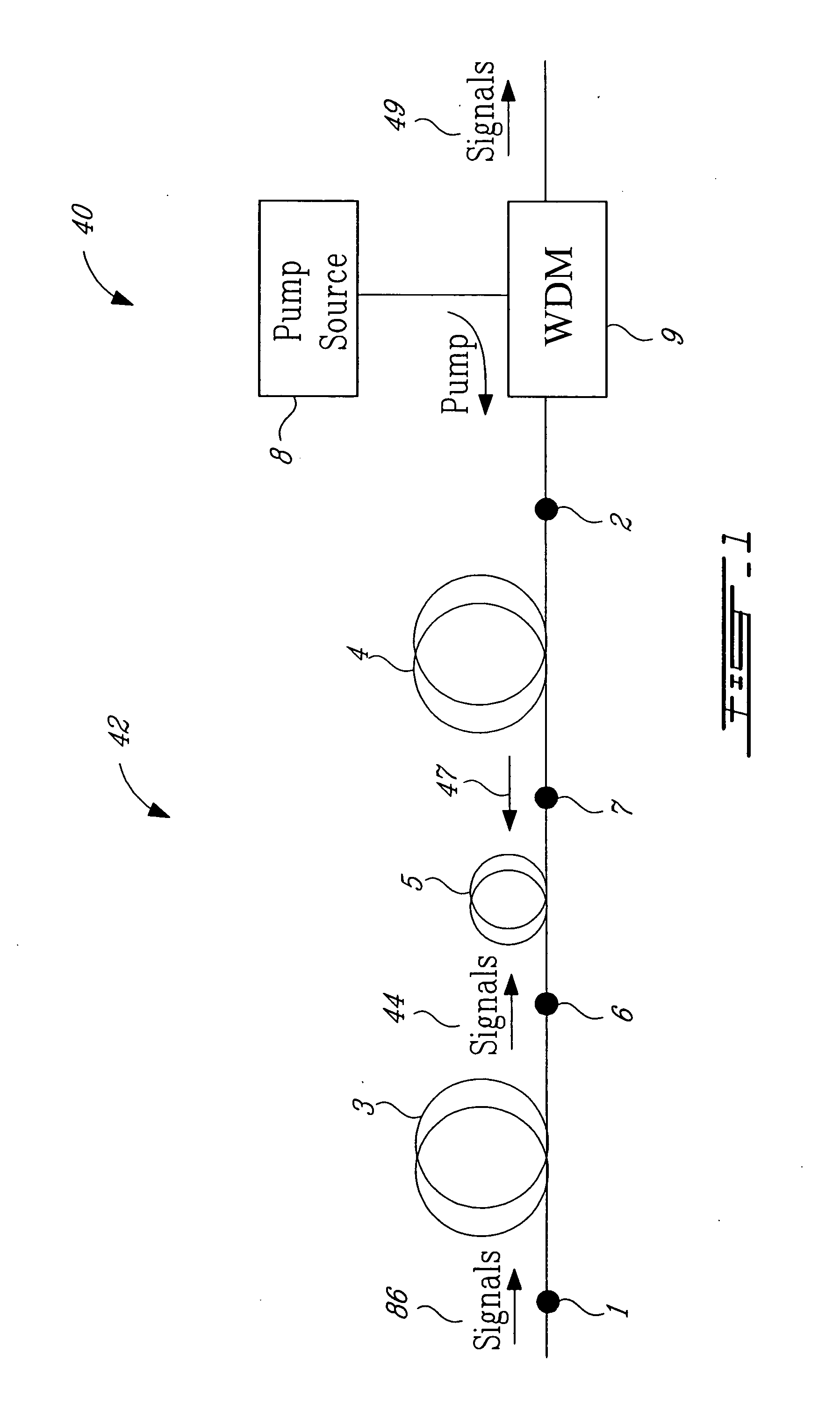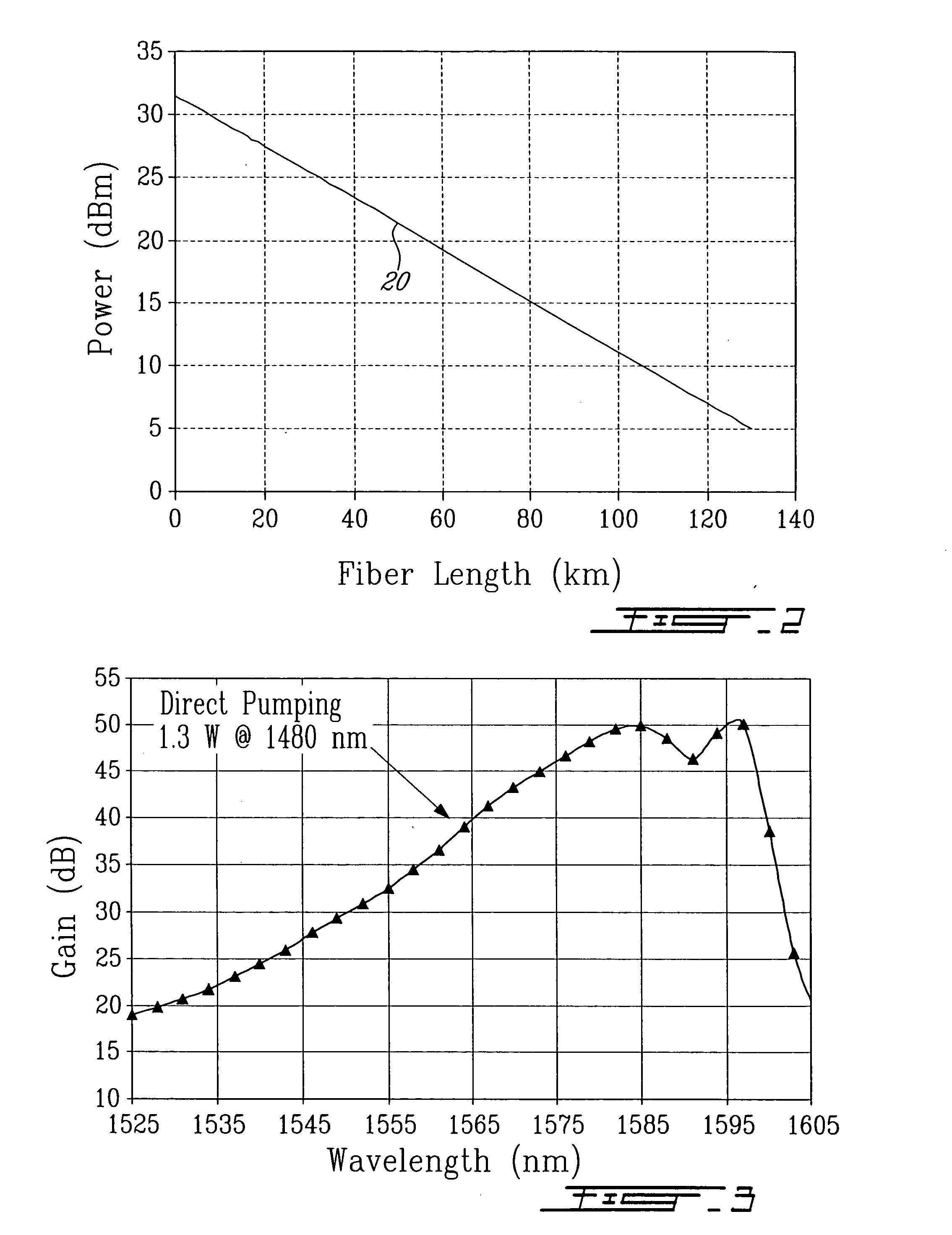Cascaded pump delivery for remotely pumped erbium-doped fiber amplifiers
a fiber amplifier and fiber technology, applied in the field of optical fiber telecommunication spans, can solve the problems of adding to the complexity and cost of the pump fiber, significant cost implications, etc., and achieve the effects of reducing energy consumption, and increasing the amount of pump power
- Summary
- Abstract
- Description
- Claims
- Application Information
AI Technical Summary
Benefits of technology
Problems solved by technology
Method used
Image
Examples
example
[0049] An experimental fiber-optic transmission span, incorporating a ROPA post amplifier and a ROPA preamplifier, was setup. Sumitomo Z PSCF (loss at 1550 nm=0.17 dB / km) was used throughout. The remote post amplifier was located 70 km from the transmitter terminal and was pumped along two dedicated pump fibers by two identical cascaded Raman pump modules substantially as shown in FIG. 8. The long-span fiber 88 carrying the signals from the output of the post amplifier towards the ROPA preamplifier was 314 km in length. A variable optical attenuator was inserted just before the remote preamplifier input to add an additional 3 dB of span loss. The ROPA preamplifier architecture was substantially as shown in FIG. 6 and it was pumped from the receiving terminal along the transmission fiber by a cascaded Raman pump module substantially as shown in FIG. 7. The fiber segment 4 between the receiving terminal and the ROPA preamplifier was 131 km long. The total span length was therefore 70+...
PUM
 Login to View More
Login to View More Abstract
Description
Claims
Application Information
 Login to View More
Login to View More - R&D
- Intellectual Property
- Life Sciences
- Materials
- Tech Scout
- Unparalleled Data Quality
- Higher Quality Content
- 60% Fewer Hallucinations
Browse by: Latest US Patents, China's latest patents, Technical Efficacy Thesaurus, Application Domain, Technology Topic, Popular Technical Reports.
© 2025 PatSnap. All rights reserved.Legal|Privacy policy|Modern Slavery Act Transparency Statement|Sitemap|About US| Contact US: help@patsnap.com



